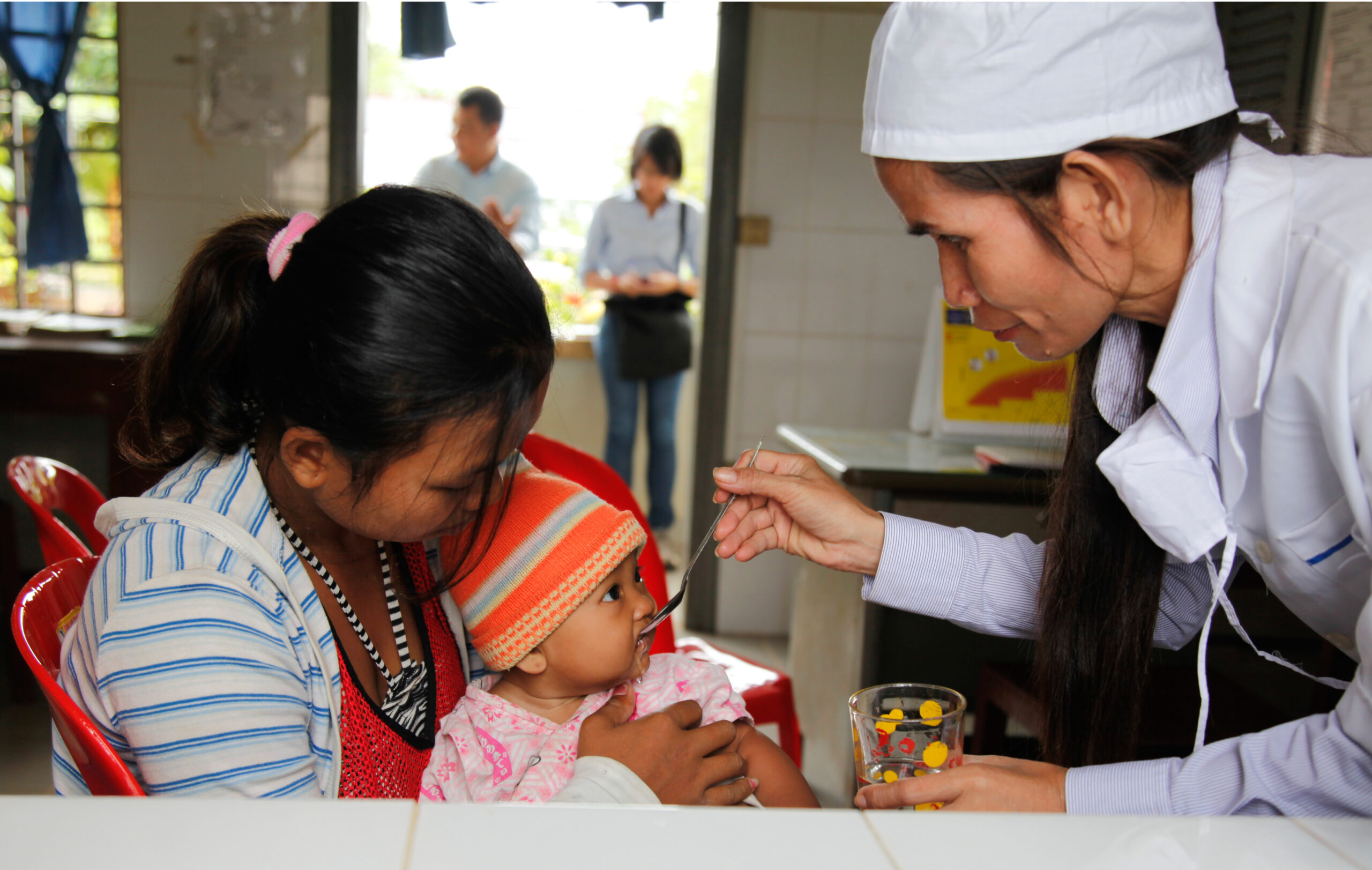
Defeat diarrhea and help stop drug resistance, too

The number of drug-resistant infections is growing worldwide. By increasing access to recommended tools to prevent and treat diarrhea—vaccines, oral rehydration solution (ORS) + zinc, and water, sanitation and hygiene (WASH)—we can help slow the spread of drug resistance.
Antimicrobial resistance: A growing threat
Antimicrobial resistance, often abbreviated as AMR, occurs when bacteria, viruses, fungi, or parasites evolve over time to no longer respond to certain medicines. AMR makes common infections harder to treat and increases the risk of disease spread, severe illness, and death. Resistance is increasing worldwide, a worrying trend that led the World Health Organization (WHO) to develop a global action plan in 2015.
The increase is largely due to the overuse and misuse of medicines, which accelerates the development of drug-resistant pathogens. AMR is also increasing due to poor access to clean water, sanitation, and hygiene (WASH) in communities and health care facilities, which perpetuates the spread of all infections. The COVID-19 pandemic is playing a role, too, as people misuse antibiotics to treat COVID-19 symptoms.
Diarrhea’s role in spreading drug resistance
Because diarrheal disease is both common and caused by a variety of bacteria, viruses, and parasites, it is a frequent instigator of drug misuse that can lead to AMR. Together with acute respiratory infections, diarrhea is one of the two leading causes of antibiotic use among children in low- and middle-income countries.
The use and misuse of antibiotics for diarrhea strengthens the resistance of bacterial pathogens to drugs. This is true whether the diarrhea is caused by a bacteria like E. coli or Shigella, a virus like rotavirus, or a parasite like Cryptosporidium. Even though some bacterial causes of diarrhea can be treated effectively with antibiotics, many species of Shigella have developed resistance to commonly used antibiotics, making cases more difficult and expensive to treat.
Because the specific pathogen causing a given case of diarrhea is usually unknown, antibiotics are often used in an ineffective attempt to treat viral or parasitic causes of diarrhea. In those cases, the antibiotics not only won’t help treat the infection; they can also engender drug resistance among other bacteria that may be present in a person’s microbiome.
Existing tools to defeat diarrhea and AMR together
Thankfully, better options are readily available. To treat diarrhea, WHO recommends oral rehydration solution (ORS) and zinc. These simple, low-cost treatments are fast-acting against diarrheal dehydration and, unlike antibiotics, have no effect on pathogen drug resistance. ORS+zinc is effective regardless of whether the diarrheal infection is caused by a bacteria, virus, or parasite.
Better yet, methods to prevent diarrheal infections from happening in the first place can reduce the need to seek any treatment. It’s a win-win for preventing diarrhea and AMR. Improvements in safe water, sanitation, and hygiene (WASH) have wide-ranging benefits to prevent diarrheal infections as well as the spread of dangerous drug-resistant pathogens in high-risk settings like hospitals, clinics, and schools.
Vaccines also have enormous potential to prevent the development and spread of drug-resistant infections. Because rotavirus infections are a common culprit of antibiotic misuse, rotavirus vaccines can help prevent antibiotic-treated diarrhea and, therefore, AMR.
One analysis estimates that, under current coverage levels, rotavirus vaccination prevents 13.6 million episodes of antibiotic-treated diarrheal each year among young children in low- and middle-income countries, or 31% of all antibiotic-treated diarrhea episodes caused by rotavirus. Under a universal vaccine coverage scenario, that percentage would increase to 73%.
To help make this a reality, new types of rotavirus vaccines are in development that would reduce cost, increase supply, and/or improve efficacy. Vaccines against other diarrheal pathogens, such as enterotoxigenic E. coli and Shigella, are also in development.
United to preserve antimicrobials
By increasing knowledge of and access to ORS+zinc, diarrhea cases can be more effectively and safely treated, preventing misuse of antibiotics. And by preventing diarrhea through vaccination as well as WASH and nutrition, there would be one less reason to need or seek antibiotics. These existing tools have the power to not only prevent diarrheal illness and deaths, but also help stop the cycle of infection, antibiotic misuse, and drug resistance.
By stopping AMR, we can help preserve precious antimicrobials for when they are really needed.


